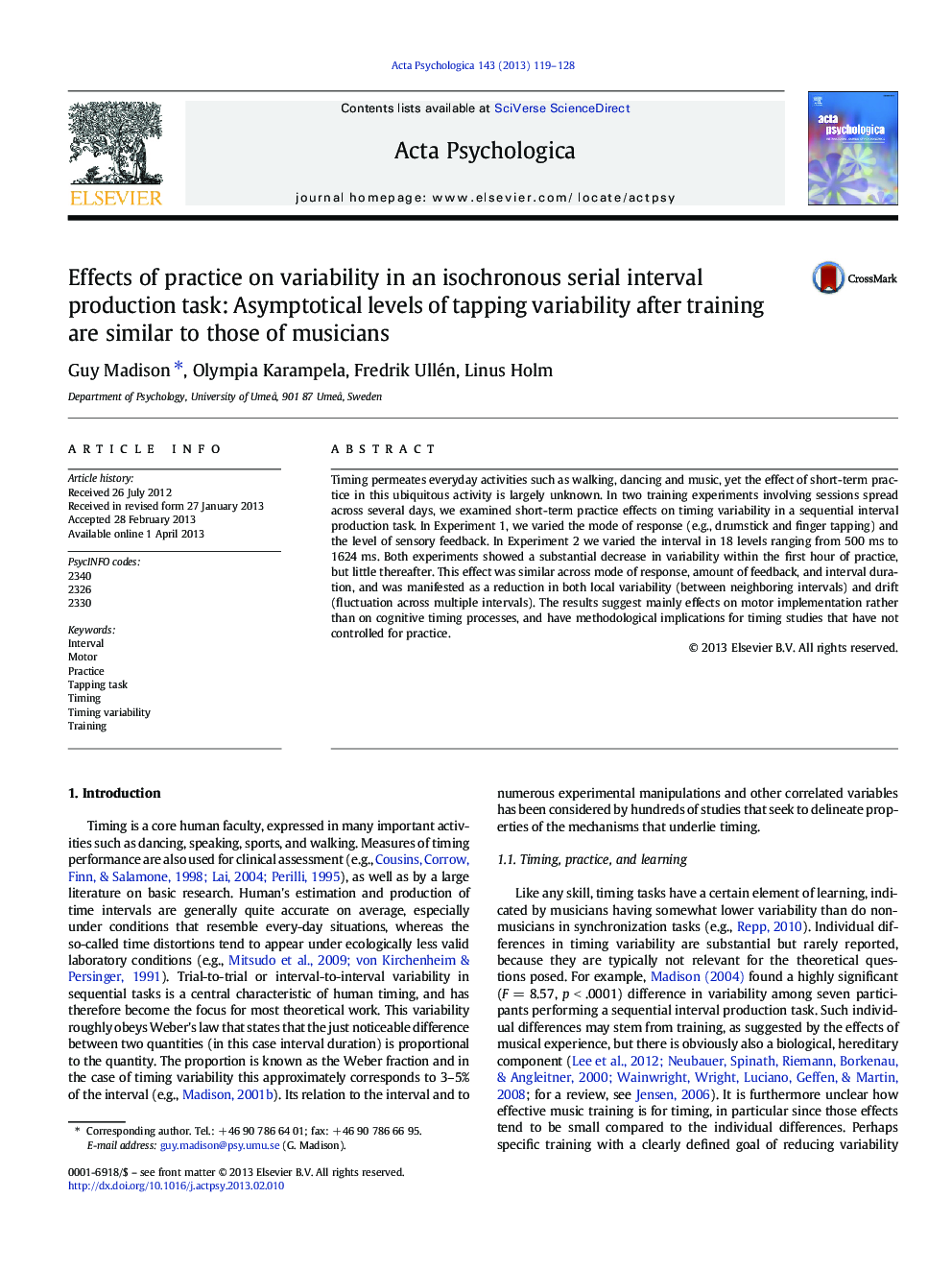| Article ID | Journal | Published Year | Pages | File Type |
|---|---|---|---|---|
| 919872 | Acta Psychologica | 2013 | 10 Pages |
•Individual differences in human timing performance relate to practice and hereditary factors.•The influence of practise is important to know for controlling its effects in research.•The mutability of timing ability is central to understanding the relation between timing and cognitive performance.•We used isochronous serial interval production as a model task and subjected participants to up to 3 hours of training.•Decrease in variability was 20-30%, which is on a par with differences between nonmusicians and musicians, who have thousands of hours of intrumental training.
Timing permeates everyday activities such as walking, dancing and music, yet the effect of short-term practice in this ubiquitous activity is largely unknown. In two training experiments involving sessions spread across several days, we examined short-term practice effects on timing variability in a sequential interval production task. In Experiment 1, we varied the mode of response (e.g., drumstick and finger tapping) and the level of sensory feedback. In Experiment 2 we varied the interval in 18 levels ranging from 500 ms to 1624 ms. Both experiments showed a substantial decrease in variability within the first hour of practice, but little thereafter. This effect was similar across mode of response, amount of feedback, and interval duration, and was manifested as a reduction in both local variability (between neighboring intervals) and drift (fluctuation across multiple intervals). The results suggest mainly effects on motor implementation rather than on cognitive timing processes, and have methodological implications for timing studies that have not controlled for practice.
